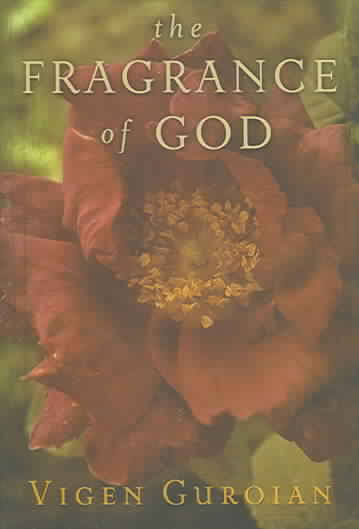The Fragrance of God
by Vigen Guroian
–Review by Teri Hyrkas
It is summer here in the US and to a gardener the quintessential image of summer is a flower garden gloriously in bloom, or a vegetable plot fully leafed out and setting fruit. For Vigen Guroian, author of The Fragrance of God (2006, Wm. B. Eerdmans Publishing Co.), Professor of Religious Studies and horticulture enthusiast, the garden is also a sacramental image — one that is filled with the presence, beauty and perfume of God.
Guroian was baptized into the Armenian Orthodox Christian Church, one of the oldest branches of Christianity, and as such his expression of faith contains a liturgy filled with icons, chanted prayers and ancient polyphonic hymns. The Armenian church maintains a holistic, non-dualistic, approach to life; that is, their Christian story keeps faith and reason, love and logic, and spiritual and material worlds together. Because of this, when Guroian enters his garden he understands that the texts he knows from the Sacred Story, the Bible, are present with him in his own yard. As he bodily inhabits his green space, he unites the text with liturgy and worships God through his handiwork in the garden. Writes Guroian: “No earthly garden ever is just an earthly garden, for God is in the Garden. Every garden is an image and a sacrament of the One Garden, our lost home of innocence, henceforth our inheritance.”
The Fragrance of God is a collection of personal meditations about Guroian’s gardens written to follow the four seasons of the year. The book has within it numerous anecdotes about the various gardens begun by nurseryman and theologian Guroian, and some stories about the gardens that were left behind, too. It is a recollection of a flower from his youth that gives the book its title:
“While shuffling through rows of potted plants at the nursery one spring, I was suddenly seized by a yearning for something or someone that I could not name. Then I became conscious of a long forgotten fragrance. It was the same Rosa gallica officinalis that grew next to my parents’ front porch so many years past…. So I took it home and planted it at the end of the garden path in our backyard.
“For five years I reveled in the fragrance of that rose. I would steal barefoot over to dew-laden dawn at daybreak, when the scent is strong, and lose myself in childhood memories…
“Anyone who as a child has played in the garden could tell a similar tale. Indeed, it may be that all such stories about the gardens of our youth are the same tale of Paradise lost and longed for.”
As Guroian takes us into his garden with his descriptions and stories, he points out a symbolic liturgical calendar and a lectionary of the church within the perennials and vegetables; they are a microcosm Paradise, he says, displaying for us beauty which escapes words, and a fragrance, which in Guroian’s words , “is mystical”:
“The metaphor of the vision of God was always liable to the criticism that it misrepresents divine mystery by promising too much. But it is not so with smell. Much like the rose I sensed in the nursery, God is mysteriously present in our lives. Although I had forgotten the scent and the rose was out of view, its fragrance awakened me to its presence. We may not see God face to face, or tangibly experience him in other ways; nonetheless, he avails himself to us as he did to Adam and Eve in the Garden. He is like the rose — and, yes, even the cabbage and the tomato vine — that, though hidden behind garden walls, infuses the air with its odor.”
Guroian, in the chapter called “The Resurrection Garden” writes this:
“Anyone who grows a garden has stood amidst sacramental signs of eternal life. On one level, the lesson nature teaches is fairly simple: What looks like death is merely preparation for the regeneration of living things. One needn’t be a supernaturalist to take comfort from this natural procession of life, death, and new life. Yet St. Clement sees nature from the special perspective of Jesus’ resurrection. He is not claiming that nature’s cycles are evidence or proof of eternal life. Rather, he is saying that nature is an epiphany of the resurrecting power of God. What the naturalist sees in nature as proof of its regenerative strength, the Christian embraces as revelation of the power of God to raise us all to life everlasting.”
In the preface, Guroian tells us that The Fragrance of God is a “small book”; this is true. One could easily read it at a single sitting. Yet its contents are deeply moving, and its images are, by turns, so wonderfully transcendent and vividly earthy, that the book invites the reader to take a lectio divina approach to its pages. For this reason, The Fragrance of God by Vigen Guroian would be a perfect book to carry with you over the summer to enjoy at leisurely pace.
If you are interested in learning more about Vigen Guroian, his writing and his gardens, Guroian was a guest on Krista Tippett’s radio program, “On Being.” You can access the program through the website’s archives at “On Being.” The name of the podcast is “Restoring the Senses: Gardening and Orthodox Easter.”

